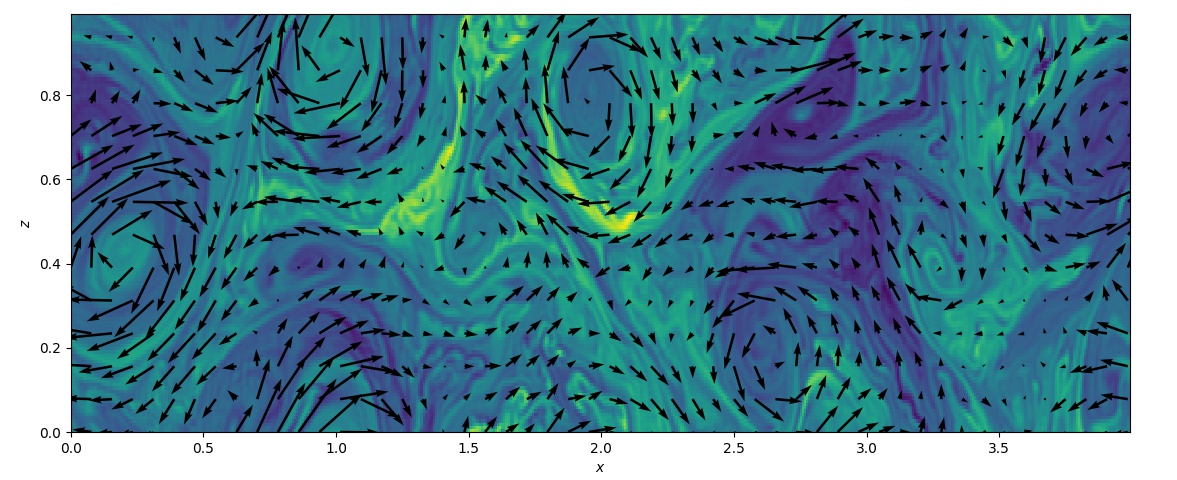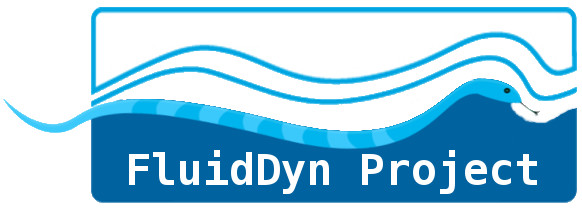Python Native Interface for faster and stronger Python
was: Universal Python extensions: performance, compatibility, sustainability, and less CO₂
Pierre Augier
PyConFR, 2nd November 2025



About me (Pierre Augier)
- CNRS researcher in fluid mechanics (geophysical turbulence, …)

Maintain software for research in fluid mechanics
![]()
Practical research on how one can
- Use Python for HPC
- Develop for science (software engineering, …)
- Teach programming and computing for science
Performance of Python interpreters
CPython is still VERY slow
Is it an issue?
YES (long term).
Strongly limits what can be written in Python and how
Can it be fixed?
Partly, but deep changes are needed, ecosystem-wide
- Python C API
- Funding
Recent notable improvement of the situation
When I proposed the abstract
A depressing situation
- Faster CPython, PyPy and HPy in trouble
- No solution
Now (after the C API Summit, EuroPython 2025)
A potential realistic solution (Python Native Interface)
A lot of work needed (ecosystem-wide investment) but seems doable
Glossary
| Python | the language |
|---|---|
| CPython | the reference implementation (written in C & Python) |
| PyPy | an alternative implementation (written in Python) |
| GraalPy | an alternative implementation (written in Java) |
| Extensions | libraries (written in C, Rust, …) usable as a module |
| Python C API | Application Programming Interface set of C functions to interact with the interpreter |
| ABI | Application Binary Interface |
| HPy | project proposing an alternative C API |
| Cython | a language (superset of Python) and a compiler |
CPython is still very slow
relatively small improvements…
but still very slow compared to …
other dynamic languages
(JavaScript, Julia, PHP, Matlab, …)
alternative Python interpreters oriented towards performance (PyPy and GraalPy)
CPython is still very slow
CPython is still very slow
CPython
$ $(uv python find 3.11) bench_loops_sum.py
3.11.2 (main, Sep 14 2024, 03:00:30) [GCC 12.2.0]
JIT Compiler: unsupported
Number of long_comp per second: 56.83 ± 0.92
$ $(uv python find 3.14) bench_loops_sum.py
3.14.0 (main, Oct 10 2025, 12:47:49) [Clang 20.1.4 ]
JIT Compiler: disabled
Number of long_comp per second: 72.63 ± 2.53
$ PYTHON_JIT=1 $(uv python find 3.14) bench_loops_sum.py
3.14.0 (main, Oct 10 2025, 12:47:49) [Clang 20.1.4 ]
JIT Compiler: enabled ✨
Number of long_comp per second: 60.55 ± 2.23CPython is still very slow
PyPy
$ $(uv python find pypy) bench_loops_sum.py
3.11.11 (0253c85bf5f8, Feb 26 2025, 10:42:42)
[PyPy 7.3.19 with GCC 10.2.1 20210130 (Red Hat 10.2.1-11)]
JIT Compiler: enabled ✨
Number of long_comp per second: 919.85 ± 170.55GraalPy
$ $(uv python find graalpy) bench_loops_sum.py
3.11.7 (Wed Apr 02 19:57:13 UTC 2025)
[Graal, Oracle GraalVM, Java 24.0.1 (amd64)]
JIT Compiler: enabled ✨
Number of long_comp per second: 1017.03 ± 21.86CPython is still very slow
Speedup versus CPython 3.11
| without JIT | with JIT | |
|---|---|---|
| CPy 3.9 | 0.74 | |
| CPy 3.11 | 1.00 | |
| CPy 3.14 | 1.28 | 1.07 |
| PyPy | 16.2 | |
| GraalPy | 17.9 |
Python slowness: standard responses
Extensions using the Python C API
- Other native languages (C, Cython, Rust, …)
- AOT Python compilers (Pythran, Cython, …)
Performance oriented Python implementations based on JIT
Warning
Extensions & Python JITs: incompatible strategies
- JIT Python compilers (Numba, …)
Python C API
Interacts with the Python interpreter from C code
A cause of the great Python success
Used nearly everywhere
Several historical issues
C API Working Group: several improvements
Focus for this presentation
Incompatibility with performance oriented Python implementations
Performance oriented Python implementations
Python implementations using JIT…
- PyPy
![]()
- GraalPy
![]()
- CPython (recent and not mature)
Focus on full Python implementations
Nothing on Numba (Python-NumPy method-based JIT compiler based on LLVM)
JITs in Python implementations
Tracing JITs
- detection of hot loops
- creation, optimization and compilation of “traces”
Only Python JITs
Bad interaction with extensions
JITs in Python implementations
PyPy and GraalPy: meta-JIT
- Interpreter written with a JIT framework
| Framework | language | |
|---|---|---|
| PyPy | RPython | Python 2.7 |
| GraalPy | Truffle/GraalVM | Java |
- JIT “for free”
JITs in Python implementations
CPython
traces of micro-ops
Copy & Patch method to produce the machine code
not mature yet
fundamentally more limited than meta JITs
Several Python functions written in C
Only a JIT is not sufficient!
Performance strongly depends on the interpreter implementation.
Garbage collection: moving GC versus ref counting
Internal representation of objects
For example,
[1, 2, 3]represented in PyPy by an array of native integers.…
Results mature Python JITs
PyPerformance typically x4 faster
On many cases, typically x20
Zero-cost abstraction + small objects
Strong incompatibility with the ecosystem based on native extensions
- theory (usually, Python JIT cannot see inside extensions)
- Python C API
-
- limitations (not Julia and Mojo!)
- bad cases
- Python itself is a problem (too dynamic)
Bad situation for perf oriented Python implementations
- cursed (many dead projects)
- too small usage
- no/less funding
- the language makes is difficult
- the current C API makes it impossible
Warning
- PyPy is clearly in trouble
- CPython JIT: Faster CPython no longer funded by Microsoft
Python C API not adapted for perf oriented Python VM
Strong and wrong hypotheses about the implementations
No opaque
PyObject: direct access to the structureReference counting (
Py_INCREF,Py_DECREF)*PyObjectincompatible with moving GC
Functions defined in extensions not typed!
Useless boxing/unboxing
For arr[i]
native int -> Py int -> C int -> C float -> Py float -> native floatPossible solutions
- HPy
- Better limited API and stable ABI
- New Python Native Interface (PyNI)
HPy
By PyPy and GraalPy devs
A new C API
- modernized: avoid many “small” issues
contextargument- references (handles) instead of
*PyObject HPy_Dup/HPy_Closeinstead ofPy_INCREF/Py_DECREF
Note
Compatible with moving garbage collection
HPy: One API for two target ABIs
standard ABI (example cpy311-cpy311)
universal ABI
- compatible with \(\neq\) Python versions and implementations
- debug mode without recompilation
HPy difficulties
- no CPython core devs
- no more funding
- global incertitude about where the C API goes
- no adoption by big projects
- NumPy 1 ported but … NumPy 2
Stalled :-(
Future of limited API and stable ABI
Limited API: a subset of the C API
Stable ABI
- compatible with \(\neq\) Python versions
- for example cp312-abi3 compatible with Python >=3.12 (so >=3.15)
Evolution for cp315-abi3 (Python 3.15)
2 incompatible build modes for CPython
(Free-threading and GIL-enabled)
Extensions compatible with both modes (
PyObjectfully opaque)
Python Native Interface
Old plan
Petr’s idea (CPython code dev, C API WG)
fully new, clean and complete CPython API
“native” (different languages, in particular C and Rust)
not focused on human usability (for tools like Cython)
C API still supported
Recent plan (after the C API Summit, EuroPython 2025)
Same as old, plus
strongly inspired by HPy (
contextargument, handles, …)universal ABI
PyNI: interesting differences with HPy
driven by CPython needs
(in particular C API WG and Faster CPython)
CPython, PyPy and GraalPy devs together
official (PEPs)
- natively supported by CPython
- much clearer for package maintainers
PyNI: possible steps (with funding!)
2025
PyPy & GraalPy 3.12
2026
- First PyNI in CPython (3.15?)
2027
- Cython, PyO3, pybind, Pythran, …
- PyPy, GraalPy support PyNI universal ABI
- NumPy migration -> Universal NumPy wheels
2028
- “NumPy Native Interface” (NumPyNI)
- Cython/… using NumPyNI
2029
- Universal wheels for most scientific/data ecosystem
Funding and supports
Python very badly funded!
Especially for such long-term ecosystem-wide projects
Companies and public sector
Reasonable investments & not so expensive!
Lack of mechanisms to allow one to support Py & co
(think research projects, CNRS, CEA, universities, …)
Organization problem, community problem
- We should not depend only on Meta, Microsoft, Google, …
- We should have people paid to work on Py & co
Conclusions
Current Python C API inhibits perf improvements
Good and fast alternative Python implementations
A technical solution: Python Native Interface
A long and ecosystem-wide project
CPython is technically ready
Good compatibility extensions & fast Python interpreters
A lot of positive effects in few years
Time, €, CO₂; more Python and better Python, …
Funding, support and organization
CPython, PyPy, Cython, NumPy, …


